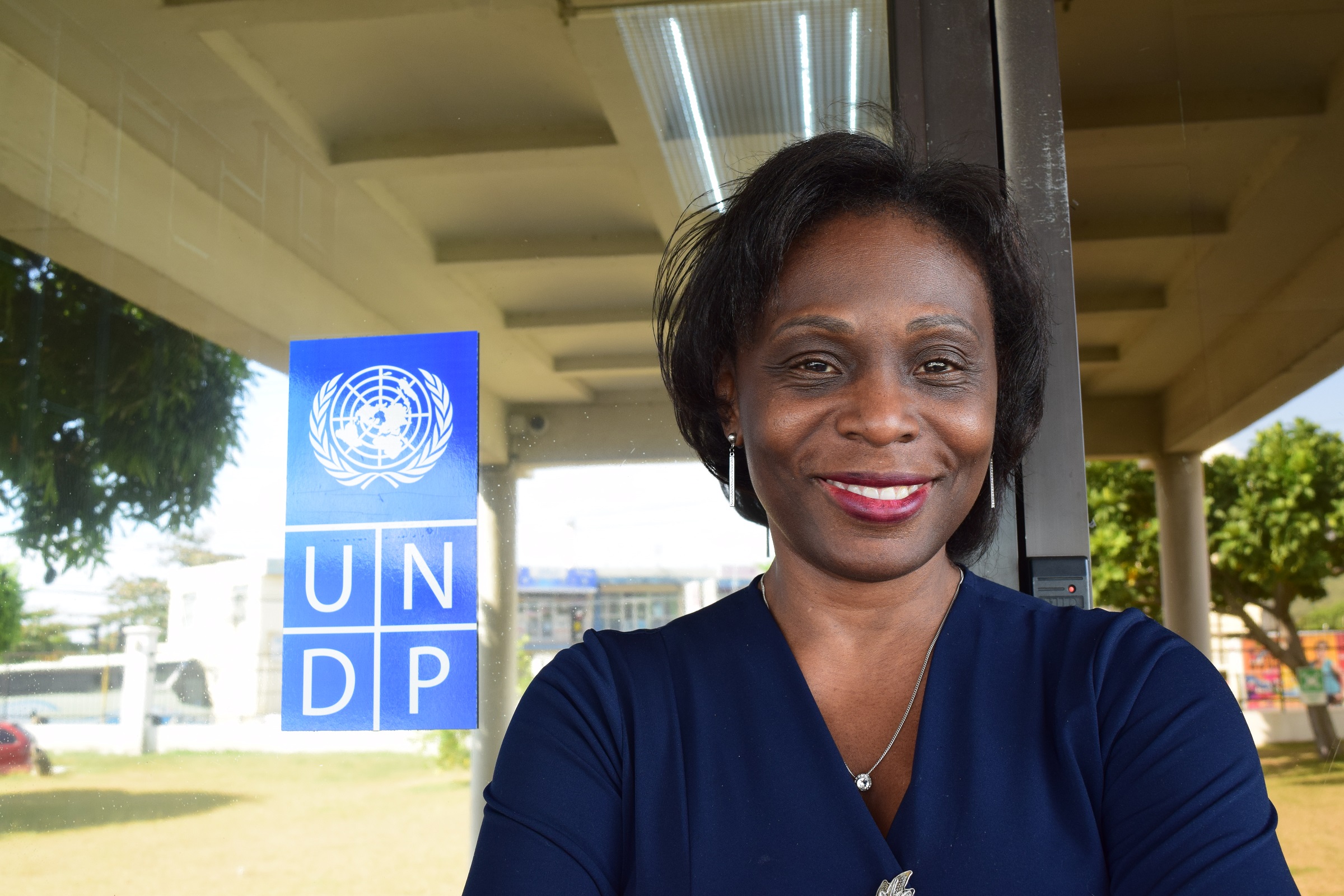Dr Elsie-Laurence Chounoune, UNDP Resident Representative, a.i.
By Dr Elsie Laurence-Chounoune,
UNDP Resident Representative a.i.
As first reported in the Jamaica Observer Opinion section
The United Nations Development Programme (UNDP) supported on February 20, a Climate Proofing Training for Policy Analysts, a timely and relevant initiative, as the world is at a critical point in its collective efforts to address Climate Change.
Climate Change poses a significant threat to the Caribbean with far reaching impacts on our Environment, Society, Economy and Culture. In a milestone message to governments and peoples across the planet last September, United Nations Secretary General, Antonio Guterres called Climate Change “a direct existential threat”, one that is moving faster than the actions we are taking to address it.
He cautioned us that if we do not change course by 2020, we risk runaway impacts, with disastrous consequences for people and the natural systems that sustain us.
A 2017 USAID Climate Change Integration Support climate risk profile of Jamaica projects a 1 - 1.4 degree-Celsius temperature rise by 2050, a 4.8 - 7.2% decrease in average annual rainfall, and a 0.4 to 0.7 metre rise in sea level by 2090. It further projects that that this will impact water supply and quality, lead to soil erosion, reduce crop yields and damage to crops and livestock. Other projected climate impacts include: spread of disease, impact on infrastructure as well as beach erosion, reduction of mangroves and fish stocks and loss of coral reefs.
As such, we cannot overstate the importance of integrating climate change adaptation and mitigation imperatives in policies and development plans to minimize these potential threats. UNDP was thus happy to partner with the Climate Change Division and the Office of the Cabinet to deliver this climate proofing training.
Policy and decision-makers will play a crucial role in ensuring that countries adapt to Climate Change. The strengthened capacity of Policy Analysts directly contributes to the attainment of Vision 2030, Jamaica’s National Development Plan and the Sustainable Development Goals (SDGs), which Jamaica has committed to achieving. Goal 13, Climate Action, specifically speaks to the need to integrate climate change measures into national policies, strategies and planning.
What then does this integration of Climate Change proofing require? As a start, we need to think in a non-siloed manner, looking beyond our respective sectors and specializations to see the broad impact of our work on national development. Our policies, in essence, will be integral in addressing Climate Change risks, and ultimately, the attainment of the multi-faceted elements of development, incorporating a focus on people, planet, prosperity, peace and partnership. Governments need to improve their capacity to identify Climate Change risks, opportunities and challenges in the development planning cycle, so that development measures are more effective, efficient and resilient.
The concept and practice of policy proofing is well suited for societies with complex development contexts such as Jamaica’s. Integrated and inclusive policy proofing processes allow for crosscutting issues, such as Climate Change and even Gender, to be meaningfully addressed across sectors. Further, they ensure that no one is left behind in our development efforts, a key principle of Agenda 2030.
The United Nations Development Programme (UNDP) is on a mission to end poverty by addressing the underlying factors through strategic actions on the Sustainable Development Goals. UNDP takes seriously its commitment to end poverty in all its forms with people and protecting the planet at the centre of development, being cognizant of the inextricable links between the two. The earth and its natural resources provide diverse opportunities for livelihoods and wealth creation, but people must do so sustainably, with future generations in mind. In turn. If not urgently addressed climate change can become an enabler of poverty by imperilling lives, livelihoods and quality of life.
UNDP lauds the Government on its efforts to address Climate Change, in particular, for convening this training, which pulls together a wide range of policy analysts from across sectors.
UNDP remains committed to advancing sustainable human development and working collaboratively to mainstream Climate Change mitigation and adaptation into development processes.

 Locations
Locations




